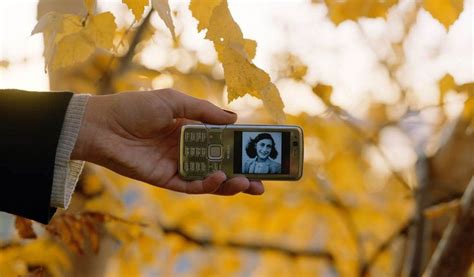Top 441 Extraordinarily Quotes & Sayings - Page 8
Explore popular Extraordinarily quotes.
Last updated on December 4, 2024.
Near the top of the market, investors are extraordinarily optimistic because they've seen mostly higher prices for a year or two. The sell-offs witnessed during that span were usually brief. Even when they were severe, the market bounced back quickly and always rose to loftier levels. At the top, optimism is king, speculation is running wild, stocks carry high price/earnings ratios, and liquidity has evaporated. A small rise in interest rates can easily be the catalyst for triggering a bear market at that point.
It meant that Diana had not waited for any explanation, however halting and imperfect, but had condemned him unheard; and this showed a much harder, far less affectionate woman than the Diana he had known or had thought he knew - a mythical person, no doubt created by himself. It had of course been evident from her letter, which made no reference to his; but he had not chosen to see the evidence and now it was absolutely forced upon his sight it made his eyes sting and tingle again. And deprived of his myth he felt extraordinarily lonely.
Now we're in a very different economy. Throughout the late 1980s and 1990s American management started to do the right things. There was extraordinary investment in technology. The dominant questions now are less how to do it better, how to manage better, how to make the economy better, than how to have fuller and more meaningful lives. Because the irony is, now that we've come through this great transition, even though our organizations and our people are extraordinarily productive, many feel that the nonwork side of life is very thin.
Nature is a hanging judge," goes an old saying. Many tragedies come from our physical and cognitive makeup. Our bodies are extraordinarily improbable arrangements of matter, with many ways for things to go wrong and only a few ways for things to go right. We are certain to die, and smart enough to know it. Our minds are adapted to a world that no longer exists, prone to misunderstandings correctable only by arduous education, and condemned to perplexity about the deepest questions we can ascertain.
History provides many examples of democracy crushed by people who said to be the champion of "genuine democracy" and "the people's real meaning". The realization about this may lead us to a defence position that conceals that democracy is an extraordinarily demanding way of rule. It must constantly find new ways to revitalize, to reach out to people and make them active. Dictatorships offers a machinery of obedience, closed and externally well-oiled. Democracy is based on fairness, openness and pulsating life. Therefore it must constantly be won again.
And why are you so firmly, so triumphantly, convinced that only the normal and the positive--in other words, only what is conducive to welfare--is for the advantage of man? Is not reason in error as regards advantage? Does not man, perhaps, love something besides well-being? Perhaps he is just as fond of suffering? Perhaps suffering is just as great a benefit to him as well-being? Man is sometimes extraordinarily, passionately, in love with suffering, and that is a fact.
I'm coming to a sense of a women's movement which was extraordinarily important in the struggle for freedom in Ireland and immediately afterwards, but then some of those women who were involved in the movement got involved in representative positions and perhaps some of them got a bit distanced from the grassroots issues. But also the women's movement itself seemed to say, "No, we've got our own government, our own parties in power" and they sat back.
These loaves, pigeons, and two little boys seemed unearthly. It all happened at the same time: a little boy ran over to a pigeon, glancing over at Levin with a smile; the pigeon flapped its wings and fluttered, gleaming in the sunshine among the snowdust quivering in the air, while the smell of freshly baked bread was wafted out of a little window as the loaves were put out. All this together was so extraordinarily wonderful that Levin burst out laughing and crying for joy.
What do I think happens when we die? I think we enter into another stage of existence or another state of consciousness that is so extraordinarily different from the reality we have here in the physical world that the language we have is not yet adequate to describe this other state of existence or consciousness. Based on what I have heard from thousands of people, we enter into a realm of joy, light, peace, and love in which we discover that the process of knowledge does not stop when we die. Instead, the process of learning and development goes on for eternity.
I don't want to see trickle down racism. I don't want to see a president of the United States saying things which change the character of the generations of Americans that are following. Presidents have an impact on the nature of our nature. And trickle down racism, trickle down bigotry, and trickle down misogyny, all these extraordinarily dangerous to the heart and character of America.
Right now in the insurance markets, we have sort of a disaster unfolding, a downward spiral, adverse selection, premiums in the individual market going through the roof. People can't afford insurance and insurance companies are losing hundreds of millions of dollars. If you repeal part of Obamacare to get rid of the individual mandate but keep some of the ideas, that people can still buy insurance after they're sick, the situation gets extraordinarily worse. And so what we're seeing now could be tenfold greater if you only repeal part of Obamacare.
I know I'm going to have to get beyond being George H.W. Bush's son and Barbara's son -- for which I'm really proud. And I'm going to get beyond being George W.'s brother for which I am extraordinarily proud as well, there's a lot of interest in finding the ways that we are different and all this. Well, the simple fact is that we're all on our own life's journey -- my brothers and sister are different than me.
It is always disagreeable to take stands. It is always easier to compromise, always easier to let things go. To many women, and I am one of them, it is extraordinarily difficult to care about anything enough to cause disagreement or unpleasant feelings, but I have come to the conclusion that this must be done for a time until we can prove our strength and demand respect for our wishes. We cannot even be of real service in the coming campaign and speak as a united body of women unless we have the respect of men and show that when we express a wish, we are willing to stand by it.
One third of all of our cancers are from tobacco. It's one of the big killers in America and more than half of our kids still have environmental tobacco smoke exposure when environmental tobacco smoke is known to be associated with sudden infant death syndrome, with ear infections, respiratory infections and the rest. If we had to pick something to really go after, that would be one that I would really argue is an extraordinarily high priority and something people can actually do something about.
I've found that photographs from different genres can be extraordinarily generous with each other. I started out photographing myself in a landscape, moved on to landscapes with and without other people, and then onto buildings, still lives, portraits, and body parts in rooms. If certain aspects of my production are getting more attention right now I think it is directly linked to a general absence of dreamed bodies in contemporary art. Viewers who mainly follow fashion have most likely not noticed this lack.
Often, very talented technical people find it extraordinarily difficult to take the viewpoint of customers, who are often ignorant about the technology and who may have strong and perhaps incorrect prejudices about it. The technical people may believe, deep down, that they know better what customers "should" need. Customers, of course, have a different perspective. They want products that will solve customer problems and provide other customer benefits, and will do so without undue risk or cost. Not infrequently, customers view advanced technology itself as a risk.
The relationship we have with God is not the same over a life; sometimes, as with human relationships, it goes through bad patches and sometimes it becomes very intense. It is a terrifying thing to have a relationship with one's creator, to spend one's life so that one is trying to converge with one's creator seems an extraordinarily difficult and sublime thing. But at the same time it's extremely simple. One of the things which perpetually amazes me is that at any moment or any day, anyone who is alive can talk with the creator of the cosmos.
One of the first roles I had on stage was with a brilliant director in a brilliant play with a brilliant cast, but I just couldn't find my way into the heart of the character. I found myself straining a lot. When it started. I felt lost. That was the Eugène Ionesco play Rhinoceros. I don't think I was prepared for that. I don't think I had the full tool kit to do it justice. It's a very difficult play, it's an extraordinarily difficult part, and I never felt I really got it right. Far from it. To a degree, Hamlet was the same.
But I think it’s important to discuss just how easy it is for any of us to get caught up in things that might seem unthinkable—to get sucked into the wrong environment and make moral compromises that can tarnish us terribly. We like to think that we change our environment, but the truth is that it changes us. So we have to be extraordinarily careful to choose the right environment—to work with, and even socialize with, the right people. Ideally, we should stick close to people who are better than us so that we can become more like them.
Yes, what we are doing is probably mad, and probably it is good and necessary all the same. It is not a good thing when man overstrains his reason and tries to reduce to rational order matters that are susceptible of rational treatment. Then there arise ideals such as those of the Americans or of the Bolsheviks. Both are extraordinarily rational, and both lead to a frightful oppression and impoverishment of life, because they simplify it so crudely. The likeness of man, once a high ideal, is in process of becoming a machine-made article. It is for madmen like us, perhaps, to ennoble it again.
I think that it's extraordinarily important that we in computer science keep fun in computing. When it started out, it was an awful lot of fun. Of course, the paying customers got shafted every now and then, and after a while we began to take their complaints seriously. We began to feel as if we really were responsible for the successful, error-free perfect use of these machines. I don't think we are. I think we're responsible for stretching them, setting them off in new directions, and keeping fun in the house. I hope the field of computer science never loses its sense of fun.




















